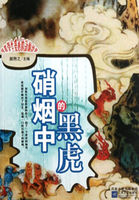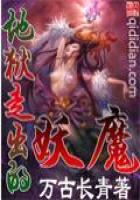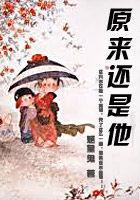Though the first days of the young koala"s life were passed in his mother"s pouch, he was not carried there very long. He was only a little fellow, no bigger than an active kitten when his mother hoisted him on to the back of her shoulders and gave him to understand that he had to stop there and hold tight, as she could not climb and reach for gum leaves and hold him at the same time.
At first he thought " piggy-back" was fine fun, but, when she crept out of the big hollow that was her home, and walked along a slender limb a hundred feet from the ground, he dug his sharp nails in with fear.
It was a cold starlit night. Possums were feeding in the same tree, and squirrels, uttering peculiar cries, darted through the air a little way off. He glanced timidly at them from time to time, but was so much taken up with the riskiness of his position that he could give little attention to anything else. The mother moved with slow, deliberate steps; nevertheless, every movement made him fancy he was going to fall. Learning to ride in such a situation as that seemed a foolhardy undertaking; it was absolutelydangerous.
His mother ran no risk of falling; the great grasping power of her claws prevented it. Numbers of her kind, when shot, had cheated their slayers by hanging on to the limb, upside down, even in death.
Drawn by Allan T. Bernaldo
"He dug his sharp nails in with fear."
Perching herself in a fork, the mother koala grasped a branch in her hand, and for some minutes sat munching the juicy leaves. Then she retraced her steps and started down the perpendicular trunk of the tree, descending backwards all the way. The youngster felt mightily uncomfortable; clinging tightly to the dense fur of his mother, and looking anxiously from side to side as she dropped lower and lower, he scarcely breathed until the long, slow descent was accomplished.
On the ground he could ride with ease and confidence. Like a little boy who had got over his first fears on the back of a pony, he even wanted to " show off." While she dug forDrawn by Allan T. Bernaldo
Bandicoots and Wallabies
succulent roots he partly sat up and scratched his ear and his ribs, looking round to admire the scenery and to see what was going on about him.
When his mother moved along the edge of a narrow belt of scrub that lined the river bank it was to him a pleasure excursion, full of interest, for there were many other creatures abroad. The frisky possums, with their gambols and chasings, their squeaks and purring chatter; the squirrels, with their sudden flights and squeals; and the night-birds calling overhead, enlivened the passing hours; while bandicoots and wallabies fed quietly around.
When Mrs. Koala saw her husband perched on the limb of a gum-tree, she climbed up to him; but, beyond a growl by way of greeting and a solemn survey of the youngster, he took no notice of them. Then Mrs. Koala brushed her little burden against her mate as she seated herself; her look and manner seemed to say, " I think you ought to hold the baby while I get my supper." But Pa Koala looked at the baby with eyes that plainly said, " Let the little brat get down and walk."Then she caught the branch he was holding and pulled it away. He was decidedly vexed, and looked at her for a moment as though he had a mind to knock her off the limb. However, he thought better of it, and shifted to another branch.
As she was a long way from home and was a slow traveller, she left early, and was climbing back into her nest just as day was breaking. The little one was glad to be home again, for he was tired from so much unaccustomed riding, and was rather stiff from clinging to a perpendicular back whilst being carried up and down trees. He rolled off with a sigh of relief, and after a drink coiled himself up in his mother"s arms and went to sleep.
He had no fears when he went out again. He was quite at home on his mother"s back, and enjoyed being carried about among the branches. As he grew older he plucked some of the leaves within his reach and, sitting up like a little jockey, munched them With enjoyment.
When he was on the ground he would slip off, and soon learned to scratch up roots for himself; and when on a limb he would dismount, and amuse himself climbing about, or sit beside his mother and eat off the branch she held in her hand.
His next step was climbing a little way up the trunks and backing down again, and soon his mother declined to carry him any more, except as a favour when he seemed tired, or when the climb was a stiff one and he cried and whimpered like a child.
But by and by he cried in vain. There was no more "piggy-back" for him; he had grown too large and heavy forbaby habits, and must now walk.
Edward S. Sorenson,in Friends and Foes in the Australian BushAuthor.-Edward Sylvester Sorenson was born in New South Wales in 1869. He contributed to metropolitan newspapers when about 25, chiefly verse and stories of bush life, and entered upon writing as a profession in 1901. Author of The Squatter"s Ward, Quinton"s Rouseabout, Life in the Australian Backblocks, Friends and Foes in the Australian Bush, Chips and Splinters, Spotty the Bower Bird, Murty Brown, etc.
General Notes.-Give other names for the koala. Describe the "squirrels" mentioned in paragraph three. What is meant by " to show off"? Make a list of the animals mentioned. Name some that are not mentioned. Make the little koala tell his own story.
A SPECkLED THRuSH
Because a speckled thrush would sing As I came down the hill,I set my burden on the ground
And hearkened to the mirthsome sound Beside a dappled rill.
I set my burden on the ground
With the first rapturous trill, Because a speckled thrush would sing, And I must heed his carollingAnd wait upon his will.
And, if a speckled thrush should sing All day upon the hill,Why should I go when such delight Waits for me from high noon till nightBeside a purling rill?
- Lilla Gormhuille Mckay
Author.-Lilla Gormhuille Mckay, an Australian writer, who hascontributed frequently to The Bulletin and other Australian magazines.
General Notes.-Notice the delicate build of this little poem and the strange way in which the rhymes and lines recur. Find a picture of an Australian song-thrush. Describe his shape, size, and coloration. Imitate his note. How many other thrushes do you know? Do you know other poems about birds?
THE WEE FELL yIN
This is a story about a dog-not the kind of dog you often see in the street here, not a fat, wrinkly pug, nor a smooth- skinned bulldog, nor even a big shaggy fellow-but a slim, silky-haired, sharp-eared, little dog, the prettiest thing you can imagine. Her name was Wylie, and she lived in Scotland, far up on the hills, and helped her master to take care of his sheep.
You can"t think how clever she was! She watched over the sheep and the little lambs like a soldier, and never let anything hurt them. She drove them out to pasture when it was time, and brought them safely home when it was time for that. When the silly sheep grew frightened and ran this way and that, hurting themselves and getting lost, Wylie knew exactly what to do-round on one side she would run, barking and scolding, driving them back; then round on the other, barking and scolding, driving them back, till they were all bunched together in front of the right gate. Then she drove them through as neatly as any person. She loved her work, and was a wonderfully fine sheep-dog.
At last, her master grew too old to stay alone on the hills,and so he went away to live. Before he went, he gave Wylie to two kind young men who lived in the nearest town; he knew they would be good to her. They grew very fond of her, and so did their old grandmother and the little children: she was so gentle and handsome and well behaved.
So now Wylie lived in the city where there were no sheep-farms, only streets and houses, and she did not have to do any work at all-she was just a pet dog. She seemed very happy, and she was always good.
But, after a while, the family noticed something odd, something very strange indeed, about their pet. Every Tuesday night, about nine o"clock, Wylie disappeared. They would look for her, call her- no, she was gone. And she would be gone all night. But, every Wednesday morning, there she was at the door, waiting to be let in. Her silky coat was all sweaty and muddy, and her feet were heavy with weariness, but her bright eyes looked up at her masters as if she were trying to explain where she had been.
Week after week the same thing happened. Nobody could imagine where Wylie went every Tuesday night. They tried to follow her to find out, but she always slipped away; they tried to shut her in, but she always found a way out. It grew to be a real mystery. Where in the world did Wylie go?
You never could guess, so I am going to tell you.
In the city near the town where the kind young menlived was a big market. Every sort of thing was sold there, even live cows and sheep and hens. On Tuesday night the farmers used to come down from the hills with their sheep to sell, and drive them through the city streets into the pens, ready to sell on Wednesday morning; that was the day they sold them.
The sheep weren"t used to the city noises and sights, and they always grew afraid and wild, and gave the farmers and the sheep-dogs a good deal of trouble. They broke away and ran about in everybody"s way.
But just as the trouble was worst, about sunrise, the farmers would see a little, silky, sharp-eared dog come trotting all alone down the road into the midst of them.
And then!
In and out the little dog ran like the wind, round and about, always in the right place, driving- coaxing- pushing-making the sheep obey, and never frightening them, till they were all safely in. All the other dogs together could not do as much as the little strange dog. She was a perfect wonder. And no one knew whose dog she was or where she came from. The farmers grew to watch for her every week, and they called her "the wee fell yin," which is Scots for " the little terror"; they used to say, when they saw her coming, " There"s the wee fell yin! Now we"ll get them in."Every farmer would have liked to keep her, but she let no one catch her. As soon as her work was done she was off and away like a fairy dog, no one knew where. Week after week this happened, and nobody knew whose the little strange dog was.
But one day Wylie was walking with her two masters, and they happened to meet some sheep- farmers. The sheep- farmers stopped short and stared at Wylie, and then they cried out, " Why that"s the dog! That"s the wee fell yin!" And so it was. The little strange dog that helped with the sheep was Wylie.
Her masters, of course, didn"t know what the farmers meant, till they were told all about what I have been telling you. But, when they heard about the pretty strange dog that came to market all alone, they knew at last where Wylie went every Tuesday night. And they loved her better than ever.
Wasn"t it wise of the dear little dog to go and work for other people when her own work was taken away? I fancy that she knew that the best people and the best dogs always work hard at something. Anyway, she did that same thing as long as she lived, and she was always just as gentle, and silky- haired, and loving as at first.
- George Macdonald
Author.-George Macdonald (1824-1905) was a Scottish poet andnovelist, born in Aberdeenshire and educated at Aberdeen University. He wrote many novels for grown-up people, including David Elginbrod, The Seaboard Parish, Robert Falconer, Malcolm, and What"s Mine is Mine. Among his fine books for children are The Princess and the Goblin, Dealings with Fairies, and At the Back of the North Wind.
General Notes.-From the description, Wylie was probably a kelpie. The "wee fell yin" means the little mighty one. Have you watched the sheep-dogs at the Melbourne Show? Write or tell any story you know of a dog"s intelligence.
SEA-HuNGER
How can I work on a day like this, When the sea is blue in the bay,And a little wind dances around my desk And whispers, "Come out to play!"And down at the port there"s a deep-sea ship,Her brown sails gleaming fair. New white paint and Manila ropeAre an incense on the air.
In a few short hours her bows will lift To the kiss of the open seas,Her brown sails shake "neath the rough caressOf the salt-stung northern breeze.
Oh, why must I work on a day like this?- When my heart is far and awayWith a deep-sea ship and her vagabond crew A-swinging down the bay.
- Marjorie Court
Author.-Marjorie Court (no biographical information is available).
General Notes.-What is the difference between " a deep-sea ship" and " a coaster"? Where is Manila? What is incense? Vagabond means wandering. Read "Sea-fever" in the Seventh Book. Which poet do you think knows more about the sea and ships?
ECHO AND NARCISSuS
Juno, the queen of all the gods, was very fond of a beautiful nymph, whose name was Echo. Now Echo had a sweet voice, which Juno liked to hear. Indeed, Echo herself liked to hear it, too.
One day, Juno was angry with her, and said:- "I am going to punish you; I shall let you keep your nice voice, but you can speak only after somebody else has spoken; and then you can say only what has been said just before."Poor Echo was very troubled when she heard the bad news. The other nymphs noticed that she spoke very little, and only after they had spoken. Though she looked the same, they could scarcely think that the sad nymph that wandered over the hills and down the valleys was the once bright and noisy Echo.
There was at this time a handsome and brave youth whose name was Narcissus. As he was wandering in a wood, he lost his way. So he called out loudly, "Is any one here?"Echo was resting under a tree close by, and at once called out, "Here." Narcissus looked around, but, as he could see nobody, he went on his way.
Just then, Echo felt her punishment more than ever, for she very much wanted to speak to the lovely boy, and ask him to stay with her. But, of course, she could not call him, and he went out of sight.
Full of sorrow, she sank down on the grass, and wept for her lost Narcissus. For days and days she remained in the same place, till at last she faded away, and only her voice was left. You may now hear it, wandering up hill and down dale, but speaking only after you have spoken, and saying the same words as you have said.
Perhaps you would like to hear, too, what became of the lovely boy Narcissus. He also was punished by one of the gods.
One day, while he was looking in a clear pool, he fell in love with his own image, which he could see in the water beneath him. He did not know that it was his own image, and asked, "Who are you?""You," replied a voice, which was all that was left of poor Echo.
Narcissus looked around, but could see nobody. He smiled, and, on looking again into the water, he saw the pretty face smiling back at him. He put down his hand to touch it, but, as soon as he touched the water, the ripples on the pool hid the image.
When the water became still again, the lovely face wasthere looking up at him. The more he looked at it, the more he loved it. He could not stop gazing into the pool. Days went by, but still he stayed there. Whenever he spoke, only his own words came back in reply, so he thought that the image was mocking him.
He grew thin and weak, too weak to leave the side of the pool. At last he faded away altogether. When his friends came to look for him, they found that a beautiful flower had sprung up where he had rested. They called it Narcissus, the name it still bears.
Author.-This is an old Greek story told by the early writers and here retold in simpler form for young readers of to-day.
General Notes.-The nymphs were lesser goddesses of woods andmountains and streams. Primitive peoples made up these stories to account for the appearances and workings of Nature. Nowadays, the scientist gives us more reasonable explanations, but without destroying our sense of wonder. Juno, you will see, was a jealous goddess. Give truer, if less fanciful, explanations of (a) the reflected voice, (b) the reflected image.















